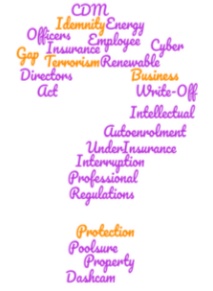
Here goes with what maybe a difficult task: defending the insurance industry. We often come in for a lot of stick and as I have said here on numerous occasions frequently deserve it, but not over Coronavirus.
Firstly, there is the success of travel insurance. Policies should have responded to claims for cancellation or curtailment of any trip where the virus has been contracted abroad or the Government have issued instructions not to travel. I am not aware of any widespread problems with claims and so far, the insurers with whom we deal have been very reasonable.
But just because insurers have paid travel claims, it doesn’t mean they have the funds to pay for everything related to coronavirus, particularly Business Interruption, with the potential economic apocalypse following the Government’s restrictions. It is unrealistic to expect insurers to pick up the tab.
There is a need to appreciate that insurers do not generally cover risks with global consequences. The potential exposure of risks such as war and nuclear are ‘too big’ for insurers and whilst The Association of British Insurers (ABI) have stated that ‘generally, all UK insurers are capitalised under Solvency II to withstand a wide range of severe events, including pandemics’, where cover is provided, it is usually in defined classes of cover such as travel, where insurers can quantify their exposure to the risk they are covering and reinsure accordingly.
Annually UK insurers pay out around £55 billion in claims, a figure that is dwarfed by the £350 billion bailout package from the Government and on the current dire projections that won’t be enough. Travel insurers will take a hit, but it won’t break them, if insurers took the hit on Business Interruption, many would go bust.
Unfortunately, much of the media coverage and Government announcements on Business Interruption insurance have been misleading. Initially businesses were led to believe that by the Government making coronavirus a notifiable disease it would trigger widespread cover under insurance policies.
Whilst it was correct that the announcement potentially triggered cover, it wrongly gave the impression that most policies provided cover and unfortunately, the majority of policies that provide notifiable infectious disease cover specify the actual diseases that are covered. As coronavirus is a new disease it is not specified and not covered.
Even with the few insurers who do cover all notifiable infectious diseases there is then the problem of when cover is triggered. Business Interruption policies generally cover interruption to a business following ‘damage’ such as fire or flood and if infectious diseases are covered it will be under a ‘non-damage’ extension. These extensions were only designed to cover localised incidents with most insurers only covering a forced closure following an outbreak at the premises and some, if the outbreak is in the vicinity.
So, where a potential claim was as much due to the wider nationwide effect of the virus and absence of customers rather than a localised outbreak, making a claim may not be straightforward. However, we then had contradictory statements from the Government and insurance industry with the Chancellor announcing what the Government had done so far ‘will allow businesses to make an insurance claim against their policy,’ but the ABI responded that the Government statement just “could help make a claim”.
So, more confusion as to the extent of cover, but it didn’t change the fact that the vast majority of UK business will not be covered. Some very large companies may have pandemic cover for their supply chains but as already mentioned, this is ‘too big’ for insurers.
In future there may be a move to a Government backed solution such as PoolRe for terrorism and FloodRe for floods, but in the meantime the best idea I heard so far is to forget the Government offer of loans and tax breaks. They should act as insurers and compensate firms who can then carry on paying staff etc. Stay safe.


Recent Comments